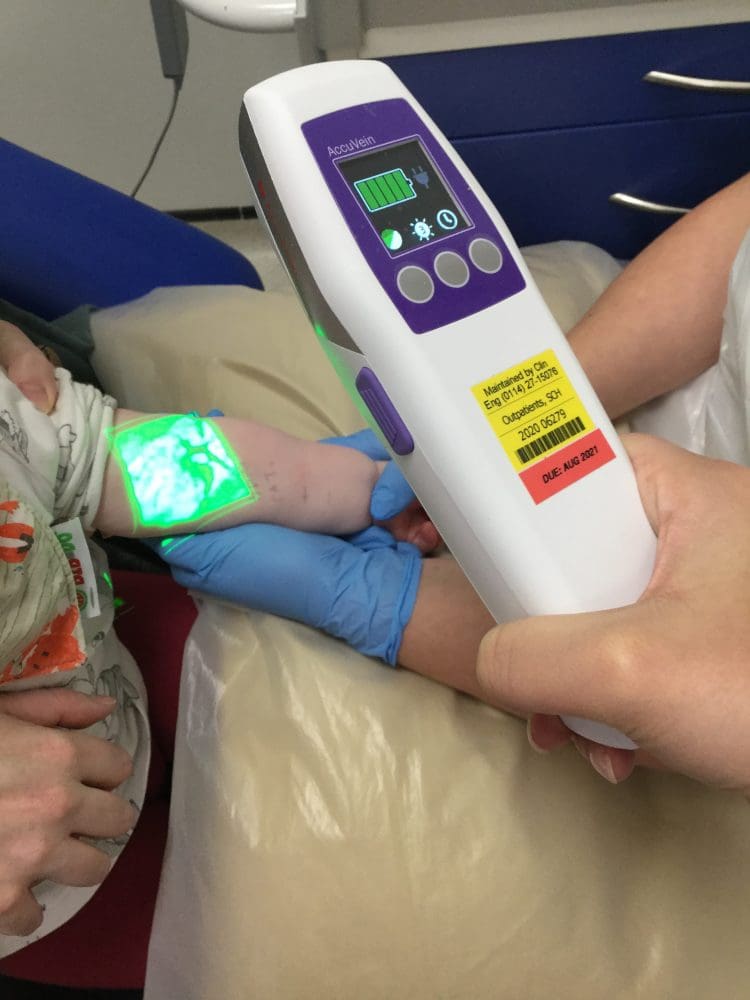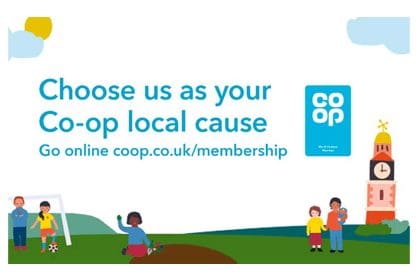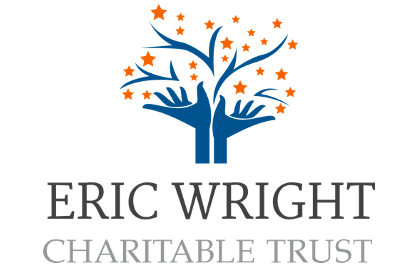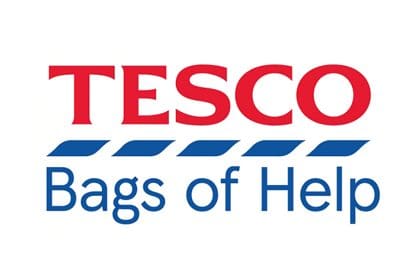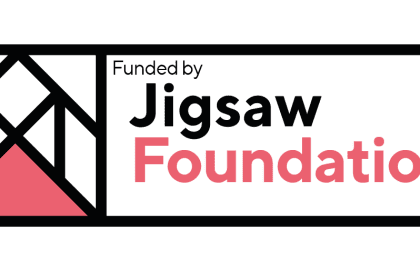The Outpatients Unit at Sheffield Children’s Hospital treats around 10,500 babies and children each year. Blood tests are common procedures on the unit for diagnoses and assessment. Veins in children and babies are not always visible to the naked eye, so it can be difficult for the phlebotomists to access them.
The AccuVein AV400 is a medical device that illuminates veins below the skin allowing the clinician to see and access them. The efficiency of the device helps to reduce stress and pain for the baby or child and avoids the need for sedation which is currently used in particularly difficult cases.
A recent trial of the AccuVein at Sheffield resulted in very positive feedback from staff and patients, particularly those with additional complex needs such as autism. MedEquip4Kids have previously funded AccuVein devices in other hospitals and have agreed to fundraise for this project which will make a real difference to the hospital experience.
The cost of providing the AccuVein AV400 is £5,070

